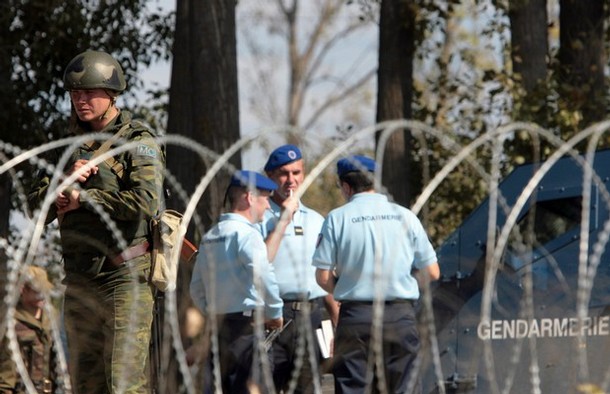
U.S. Defers Decisions on Re-Arming Georgia
Publication: Eurasia Daily Monitor Volume: 6 Issue: 150
By:

U.S. Vice-President Joe Biden made clear during his Georgia visit (July 22-23) that the United States would not supply Georgia with defensive weapons. Georgia has no anti-tank and anti-aircraft systems (never having received any from the United States or other Western allies). Tbilisi had hoped for supplies of such systems to discourage any possible Russian military move into Georgia’s interior, following the August 2008 war. The Bush administration deferred this issue to the next administration of President Barack Obama. Almost one year after being raised, however, this issue was removed at the last moment from the official agenda of Biden’s Georgia visit.
In the aftermath of the vice-president’s visit, U.S. officials in Washington indicated that military assistance to Georgia would be limited to defense sector reform, troop training, and officer education. According to defense and state department officials in the most recent congressional hearings, defensive weapons for Georgia are not on the cards for the time being, but neither are they ruled out indefinitely. The U.S. government is currently examining a meager $16 million request for military aid to Georgia this year, mostly for training and technical assistance (AP, August 4).
At the same time, the United States is reaffirming its support for Georgia’s aspirations to prepare for NATO membership. It remains to be seen how Georgia can prepare to meet NATO standards while lacking a conventional military force for homeland defense. It also seems unclear how this situation would affect the scope, pace and implementation of Georgia’s Annual National Plan with NATO and of the U.S.-Georgia Charter of Strategic Partnership.
Moscow is responding in its own way to this demonstration of U.S. restraint, apparently perceiving it as weakness. Russia’s envoy to NATO, Dmitry Rogozin, warned that Moscow would impose economic sanctions on any companies, "including U.S. companies," that would sell arms to Georgia (Interfax, July 24, 27). Deputy Minister of Foreign Affairs and State Secretary Grigory Karasin threatened "concrete measures" against "any country" that supplies arms to Georgia (Interfax, July 23); and charged, regardless, that the United States was "revving up Saakashvili’s military machine; we will be watching." Karasin also targeted Ukraine by name (Interfax, August 4).
On August 4, Russian president Dmitry Medvedev telephoned Obama with congratulations on Obama’s birthday. According to the Russian side, "views were exchanged on the lessons of the [2008] Georgia war." According to the U.S. side, however, they "discussed the situation in Georgia and the need to decrease tensions" there. The issue of Georgia was placed inconspicuously in the Russian communiqué, but rather conspicuously in the U.S. communiqué, which was clearly goal-oriented (Interfax, August 4; White House press release, August 4).
Meanwhile, the United States has almost completed the disbursement of a $1 billion post-conflict recovery assistance package to Georgia, which had been approved in the aftermath of the August 2008 war. Following Biden’s latest visit, the International Monetary Fund has reached an agreement with Georgia for $420 million of additional financing, under a previously approved $750 million anti-crisis program. The additional amount should extend that program until mid-2011.
The United States and the European Union are considering a Georgian proposal for U.S. personnel to join the E.U.’s Monitoring Mission in Georgia (EUMM). The possibility of Canadian and Turkish personnel joining is also under discussion. Some influential European governments variously resist U.S. participation (it might "provoke further incidents") or Turkish participation (due to their own problematic relations with Turkey). Still other governments would prefer to maintain the EUMM as a purely E.U. operation, under the European common foreign and security policy. Britain, the Baltic States, and Poland are among the countries urging U.S. participation in EUMM. The Council of the European Union at its latest session (July 27) deferred consideration of this issue until after the summer break (Council Conclusions, July 27; BNS, July 27; www.euobserver.com, July 28).
Although the EUMM is mandated to monitor Georgia’s territory on both sides of the demarcation lines, Russian forces do not allow access into Abkhazia and South Ossetia. The Mission is confined to Georgian-controlled areas adjacent to the demarcation lines. Even so, EUMM’s current manpower of some 220 does not seem commensurate to the magnitude of its task, particularly in view of the ongoing series of escalation-prone incidents.




